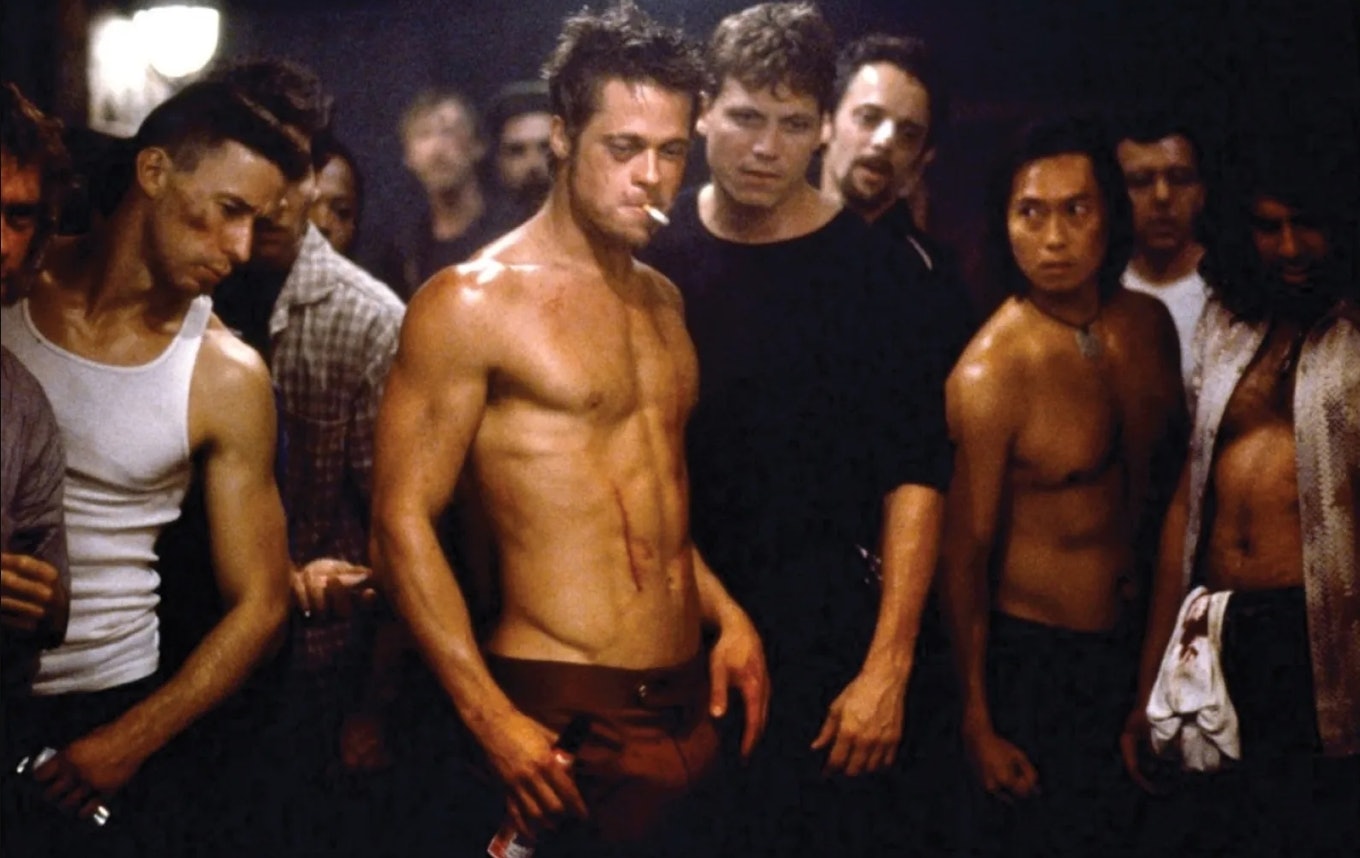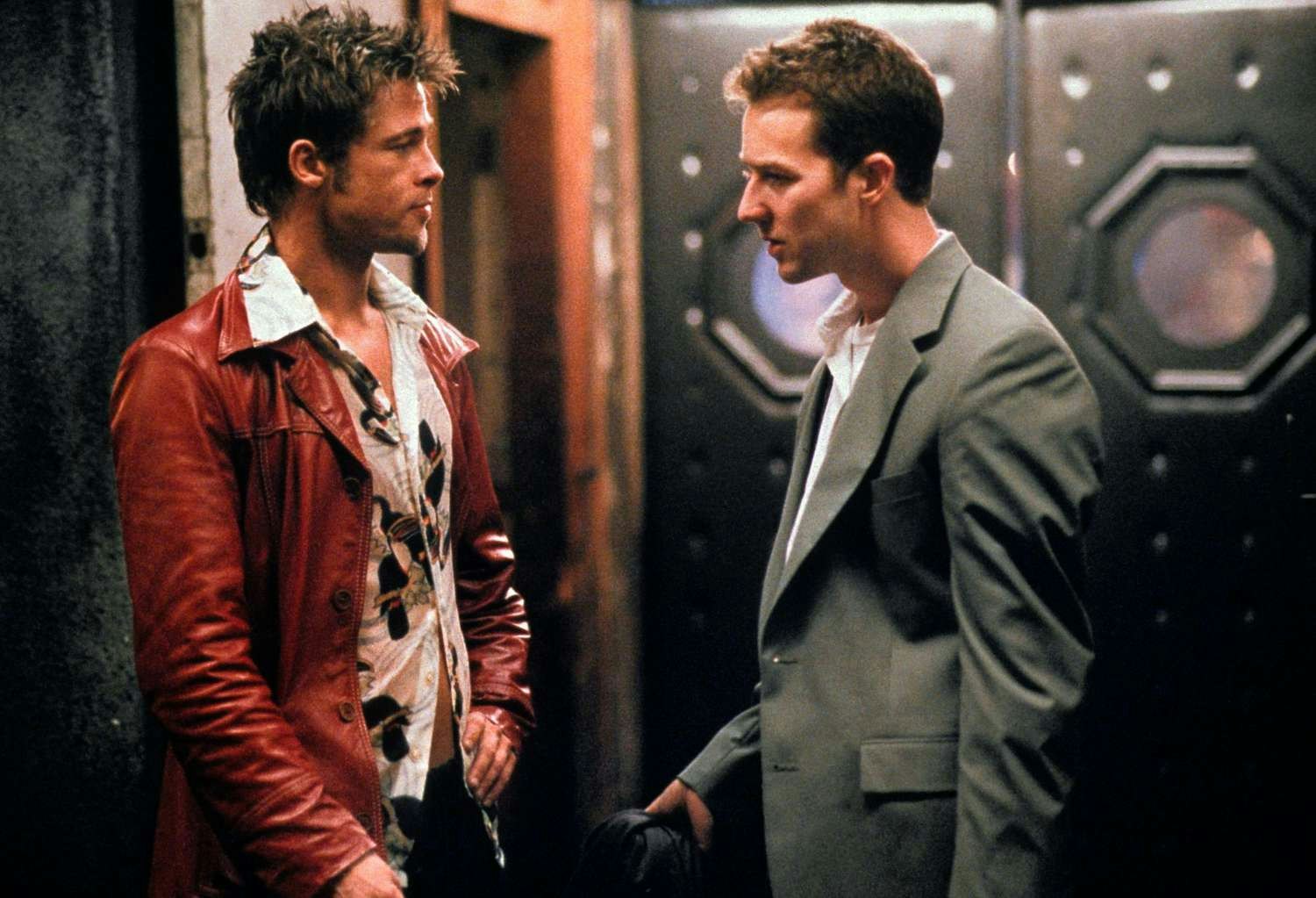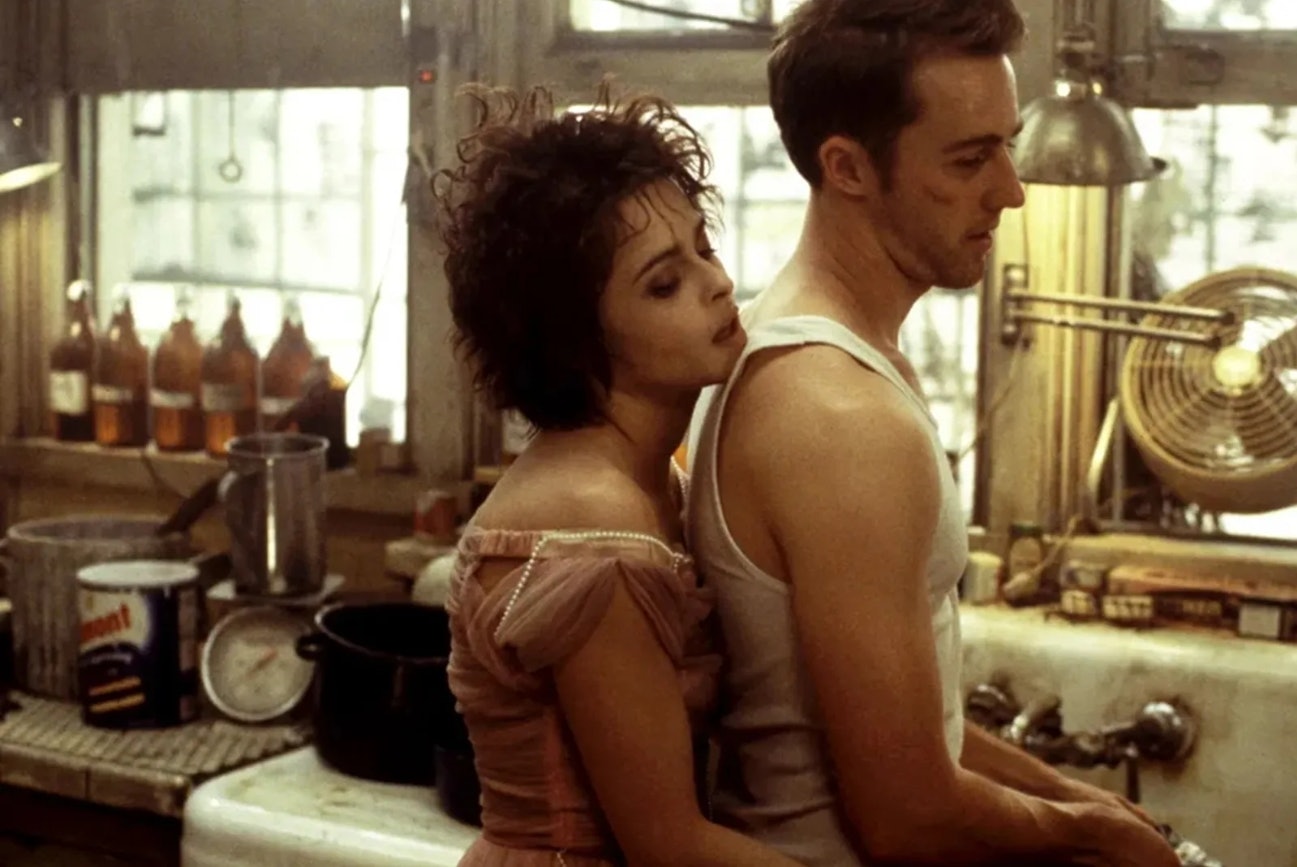
It’s not every movie that gets its own Wikipedia page about interpreting it, but such is the passion Fight Club inspires. Is it a trenchant takedown of consumer culture, or a bunch of puerile pseudo-philosophy? Is it a clever deconstruction of toxic masculinity, or an empty embrace of it? Did Jared Leto get beat up too much, or not enough? And has Fight Club, which celebrates its 25th anniversary today, aged badly?
There’s certainly no easier way to attract readers than to suggest as much. Once infamous for being beloved by bros who thought being in a fight club looked cool and good (Vice called it “the Reddit of movies,” whatever that means), the movie is now getting flack for putting Edward Norton through an existential crisis after he tires of his steady job and cozy condo.
Every five years, “Fight Club is dumb now” takes emerge like cicadas in search of viral success, often written by men embarrassed to have liked the film in their youth. There’s no shortage of excuses to look down on it, from the alt-right co-opting its language to its purported argument that men are emasculated by a society that won’t let them process their feelings through violence. But if you’ll indulge the novelty of a straight white guy finally sticking up for Fight Club, it still has relevant ideas buried beneath its endlessly relitigated memes.
The movie, for anyone who hasn’t absorbed the basics through pop culture osmosis or had the film foisted on them by an excited boyfriend, stars Edward Norton as a nameless white-collar office drone suffering from insomnia and a bad case of malaise. He finds emotional catharsis in attending support groups for diseases he doesn’t have, but after a chance encounter with charismatic soap salesman Tyler Durden (Brad Pitt dressing like a garish boxing promoter), the pair find a new outlet in beating the crap out of each other.
More disillusioned men join them for their weekly brawls as Durden spouts a lot of quasi-insightful speeches about how our possessions shouldn’t define us, dreams of becoming famous are vapid traps, and dead-end jobs are dooming a generation of men to slow deaths. Before long, Durden is molding these men into a paramilitary unit, and as their juvenile pranks against the society they feel abandoned by escalate into acts of terrorism, Norton’s narrator tries to rein in the monster he’s created.

A polarizing underperformer upon release, Fight Club gained steam through home media and word of mouth until it was one of the most talked about films of the ‘90s. Not everyone was enamored. The Guardian complained that “Far from satirising the tiresome ‘crisis of masculinity’ … the film simply endorses it.” (A teenager did try to blow up a Starbucks, in one of several incidents blamed on the film.) Other critics lamented that its rants about society’s ills were surface-level, as though Durden should have monologued about the decline of publicly funded institutions instead of getting into all those nasty fights.
Of course, Durden’s ramblings feel shallow and contradictory to adult viewers because they are; whatever insight he offers is ultimately canceled out by his empty nihilism. “He’s the bad guy, duh,” is not a new refute of the haters, but what does tend to go overlooked are the specifics of the supposedly good job the narrator holds: he studies traffic accidents and determines if it’s financially viable to avoid recalling vehicles with fatal flaws. He enjoys material comfort in exchange for accepting the suffering of other people, and when that contradiction finally breaks him, he can think of nothing more productive to do than rage about it.
Like it or not, five minutes on social media will show you that such concerns remain relevant. Large swathes of Americans feel detached from their jobs, almost the entirety of Gen Z thinks they’re underpaid, and 41% of the country says the American dream is no longer achievable. Regardless of how valid these complaints are, there are a lot of grumpy people out there. And while everyone may be sick of hearing that young men are angry and bitter, you don’t develop a subculture dedicated to threatening women for being in Star Wars if things are humming along just fine.

Fight Club ends with the narrator banishing Durden and implicitly accepting a middle-ground between mindless consumerism and cynical self-destruction, a moderation Fight Club discourse should also aim for as the film celebrates its silver anniversary. Philosophizing aside, it remains funny and theatrical. All the arguments about its themes should be remembered in the context of Edward Norton stumbling through the final scenes in his underpants while ineptly threatening to issue “a lead salad.” It’s a damp, sticky, visceral experience that shows off the style director David Fincher would later bring to projects like Zodiac and Gone Girl.
Fight Club looks dated as 1999 slips further into the past, but it hasn’t aged. Young male viewers might be baffled by the payphone-based plot twits, but it wouldn’t be hard to translate its complaints about celebrities and crap jobs to Instagram influencers and gig work. Hell, rework the quotes a little and Durden sounds like modern nonsense sage Jordan Peterson; they even wear the same stupid clothes. Fight Club’s generational lens is unique, but its concerns — both legitimate and juvenile — are eternal. And while you may not like its characters, most of them don’t gravitate to petty tyrants like Durden if the culture they consume isn’t off-kilter.







